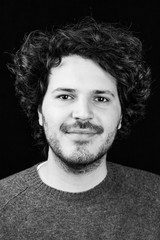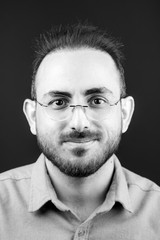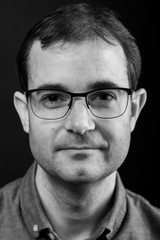The leader of the group Computational Imaging: Tristan van Leeuwen
Computational Imaging
Developing the next generation of 3D imaging – enabling scientists to look further into objects of all kinds.
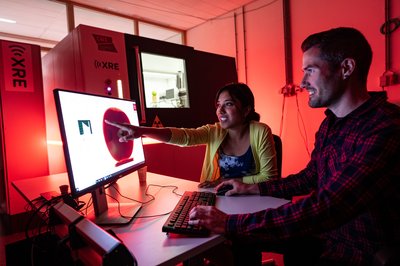
Our research group is developing the next generation of 3D imaging – enabling scientists to look further into objects of all kinds. Based on mathematics, algorithms and numerical solution techniques, our approach is interdisciplinary, combining aspects of mathematics, computer science and physics. We pride ourselves on the versatility of our solutions, and our algorithms can be applied to a wide range of imaging in science, medicine and industry. In Computational Imaging, it’s our goal to constantly push the boundaries of research. By combining advanced image acquisition, parameter estimation, and discrete tomography algorithms for example, we are able to develop workflows for 3D electron microscopy at atomic resolution.
More information on the Computational Imaging group at CWI and its FleX-ray Lab.
News
All newsCWI partners with startup Raynetics on advanced 3D image reconstruction
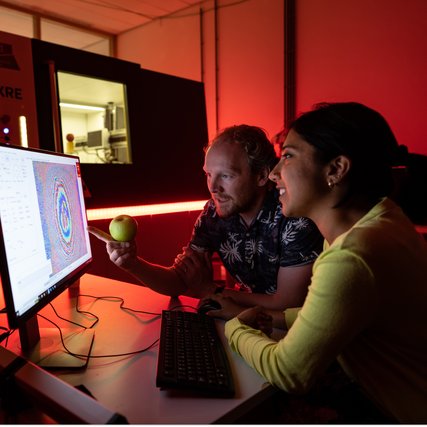
Francien Bossema wins KHMW Thesis Award for Interdisciplinary Research 2025
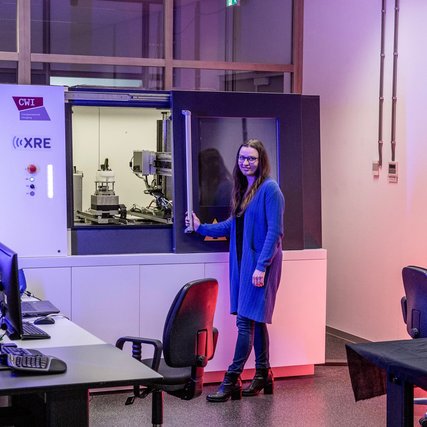
Francien Bossema: "In the museum world, I was the odd one out as a mathematician"
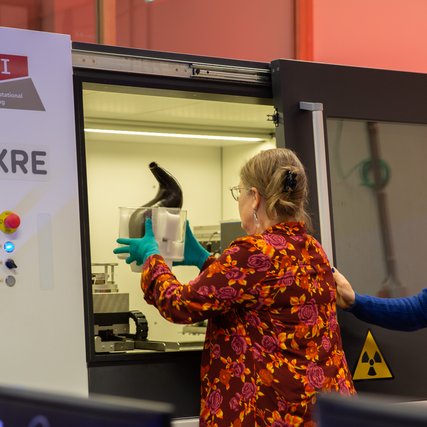
CWI part of funded food imaging project

Events
All events-
StartEndThis workshop is part of the Research Semester Programme ”Bridging Numerical Analysis and Scientific Machine Learning: Advances and Applications”. The workshop will facilitate open discussion between researchers across different fields together with industrial practitioners.
Members
Associated members
Publications
All publicationsSoftware
Courses
-
Inverse Problems in Imaging(3 Feb 2025 - 19 May 2025)
-
Introduction scientific computing(1 Jan 2025 - 1 Mar 2025)
-
Introduction scientific computing(30 Jan 2023 - 24 Feb 2023)
-
Laboratory class scientific computing(1 Jan 2023 - 31 Mar 2023)
-
Inverse Problems in Imaging(6 Dec 2022 - 1 Feb 2023)
Current projects with external funding
- COmputaNal Imaging as a training Network for Smart biomedical dEvices (CONcISE (101072354))
- the Center for Optimal, Real-Time Machine Studies of the Explosive Universe (CORTEX)
- Flexible X-ray Laminography for Art (FLEXART) (FLEXART)
- IMAGINE: an open innovation lab for accelerated development and implementation of image guided interventions (IMAGINE)
- Dynamic X-ray Computed Tomography using Deep Generative Networks (None)
- Computational Imaging for quality inspection in fruit sorting (PPS Greefa)
- Universal Three-dimensiOnal Passport for process Individualization in Agriculture (UTOPIA)
- Enabling X-ray CT based Industry 4.0 process chains by training Next Generation research experts (xCTing)






